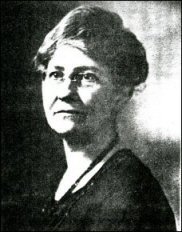|
 |
|
 |
Thursday, January 26, 1950
Fifty years, however, brought their compensations. Instead of sand and mud in which to travel we have modern, solid highways both made by the State and County. There are three of them leading into Potsdam, the main outlet of trade. One of the finest leads to Colton, another to Hopkinton. Some of them are used when we go into the country in all directions, even to "Wick." It is a never ending pleasure to go up to the High Flats, Jo Indian or all points east. But the horse and buggy? They went with the old roads mostly, for the half-century sped up the pace of our lives equal to that of all other parts of the world. In fact nothing ever revolutionized civilization more than the automobile and good roads. They quickened the pulse of humanity almost dangerously. I imagine that most of the young men who daily commute to Potsdam or Massena to do business do not use up over 20 minutes on the road either going or coming back, whereas in the old days it was a tiresome day's work to go to town to "trade" or transact business. It really does not matter now that the wheels in "The Hollow" are still forever for a newer and shorter method of getting into the world came into being less than 50 years ago. Cars and trucks are in the garage instead of Dobbin in the barn. But a few remember coming up the Dugway deep in the sand, around two in the morning, and behind a horse, after going to Potsdam to a show. We made no complaints, as there was no other way then, and our friends were plodding along in the same way. And we were just as happy as we are to-day watching out for traffic which could and does stuff out a life in a jiffy. You may remember that Tennyson, well beloved in 1900 said of his time, "Better 50 years of Henry Ford than 100 of the horse and buggy? We who start another 50 years have no quarrel with progress, either.
But one of the lonesome features of change is the disappearance of familiar faces who lived and went about among us in 1900. There is not a single member of the Clark family within 500 miles of their old home. Only their old houses remain. "Sim," "Plin," "Hal," and Jason are all gone on before. Their descendants are far off from here. Gone, too, are all the Daggetts, the Adams, Tupper, Faulkner, Morway, Collins, Robson, Schellender, Cole, and Meekham families. Only Royal Hoyt and Fay Duffy represent the once numerous branches of their families. We cherish their memories and others, but rejoice that new people have arrived to carry on life in the village as worthily.
Fifty years ago kerosene was the medium for lights, both in homes and for kitchen use, such as cooking. There were some oil stoves then. A few poor street lights were in use here, but lanterns were by no means obsolete. Not until around 1912 did electricity come into general use in homes and for the streets. Now, few housewives have anything to cook by except electricity or gas, and the street lights are all right. Also, telephones are in general use in the homes. We are no longer isolated from near-by towns or the rest of the world. It was a common occurrence during the war for parents to talk with their sons on the other side of the world.
If my editor permits I would like to review changes in schools and churches another day.
|